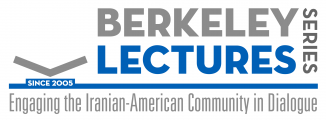“Berkeley Lecture Series” Presents:
تئاتر امروز ایران
سخنران: ناصر رحمانینژاد
Date: Sunday, July 29, 2012
Time: 4:00 P.M.
Place: 110 Barrows Hall
University of Berkeley California, Berkeley
“تئاتر ایران مانند همۀ چیزهای دیگر در این سرزمین پس از انقلاب (1357)، زیر سلطۀ یک سیاست دینی، ایدئولوژیک، تنگ نظر، انحصار طلب، و بدتر از آن بی قانون، متناقض و تعرضی، آسیب های جدی دیده و دچار دگرگونی هایی شده است. این دگرگونی ها نه بر روال رشد طبیعی این هنر، بلکه عمدتاً در تعارض با رشد آن و در ستیز با آن، توسط سانسور شدید و روش های استبداد دینی، تئاتر ایران را به نقطه ای رسانده که امروز قرار داریم: تئاتری که با ریشه های راستین ملی و فرهنگی خود قطع ارتباط کرده و با تحمیل تفکر و عناصر دینی که نمایندۀ فرهنگ اکثریت ایرانیان نیست، آن را به بن بست کشانده است.”
گفتار این جلسه کوشش دارد برخی عوامل اصلی این آسیب ها را مشخص ساخته و تشریح نماید.
ناصر رحمانینژاد از زبان خود او:
از راه تئاتر بود که من جایگاه اجتماعی خود را یافتم. تئاتر به من هویت اجتماعی، فرهنگی، سیاسی، و از همه مهم تر، هنری بخشید؛ اما نان را از من دریغ کرد. من هیچگاه نتوانسته ام از طریق تئاتر نان روزانه ام را تأمین کنم. در طول تمام سالهایی که در تئاتر بوده ام، همواره برای نان خود کار کرده ام. حتا گاه دستمزد کارم را در تئاتر ریخته ام بی آنکه بازگشته باشد. تئاتر اگر به من نان نداد، در عوض رژیم های قبل و بعد از انقلاب اما، جیرۀ فراوانی از زندان و محرومیت از صحنه به من بخشیدند! پاداشی که هنرمندان مستقل و آزادیخواه از طرف رژیم های ایران دریافت داشته اند! این پاداش گاه گلوله های سربی بوده است!
من از سال ١٣٣٨، برای معنا دادن به زندگی ام، در کار تئاتر بوده ام و نان مختصر خود را با کارهای گوناگون تأمین کرده ام. و جای بسی شگفتی است که این امر در زمانۀ ما، شگفت نمی نماید!
More information at http://www.irantheatreassociation.com/
Lecture in Persian
Nasser Rahmaninejad, a foremost celebrated Iranian artist started his theatre career in 1959 in Iran. In response to the authoritarian cultural policies and harsh censorship of the Shah’s regime, he founded his alternative, independent theatre group, Mehr, in 1966.
His group, which later changed its name to Iran Theatre Association, became very influential in the field, competing with other well-financed, state-sponsored theatre groups until it was closed down by the SAVAK, the Shah’s secret police in 1974. All members of the group were arrested and Rahmaninejad was sentenced to 12 years in prison; though he was ultimately freed by the 1979 revolution that toppled the Shah’s regime.
After the revolution Rahmaninejad resumed his artistic activities, staging several plays while teaching at Iran’s Faculty of Dramatic Arts, while writing articles and lecturing on theatre and politics for a range of audiences.
Following the Islamic regime’s crackdown on the opposition, Rahmaninejad was forced into exile. However, he continued his artistic activities writing essays, translating articles on theatre and politics into Persian, and lecturing at a variety of academic and artistic organizations in Europe and the United States, such as the International Writing Program (University of Iowa), the Center for Iranian Research and Analysis (CIRA), and the Iranian Studies Program at Stanford University. His plays in exile include My Heart, My Homeland, produced and performed by the Department of Theatre of Columbia College of Chicago (1995); and One Page of Exile, performed in the inaugural “New Windows on Old Pasadena” festival (1996). Rahmaninejad lives in the Bay Area, California.





